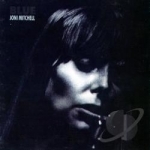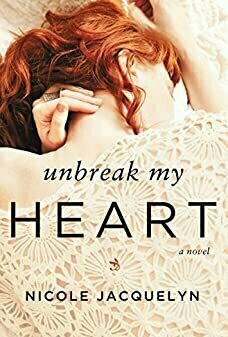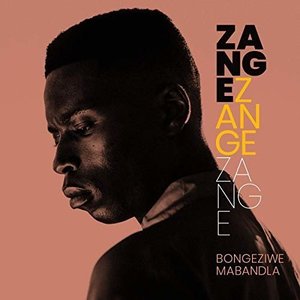Natasha Khan recommended Blue by Joni Mitchell in Music (curated)
Leanne Crabtree (480 KP) rated Unbreak My Heart (Fostering Love #1) in Books
Jan 11, 2021
I don't normally read reviews by others for books I'm about to start but I did with this one. A lot of the reviews were moaning about Shane and they stuck with me, so I'll admit I was a bit biased. Before that little rant starts, though...
This starts with Shane and his wife Rachel heading to see Kate sing and play her guitar in front of a small audience. Kate is Rachel's best friend and helps her look after her three children while Shane is overseas with the military. Tragedy strikes and Rachel dies a few weeks later, though the baby she was pregnant with at the time survives. One year later and it's the anniversary of her death and in a drunken mistake they sleep together. What follows is an emotional rollercoaster.
Now for a bit of a rant. Shane was very hard to like for the first 50% of the book. He was cruel and mean to Kate and I was ready to knee him in the balls. He wanted everything a certain way and if and when that didn't work he got angry and said mean things. Fair enough he regretted them later but just...no! I used about 6 tissues at one point around the 55% mark because it was just so unfair and I was a snotty red eyed mess so I put it down and went to bed. I'd become invested in them as a couple and he was making it very hard for it to happen. I do believe he redeemed himself enough by the end, though. He eventually realised how hurtful he'd been for years! and did everything he could to make it right. He explained himself more and did stuff to help her in ways that really mattered. He still effed up occasionally but they learned to talk to each other. It was really nice to read their relationship in the end.
I could probably have read it all in one sitting if I'd started it earlier in the day. It definitely dragged me in from the start - wondering how this rather mean main character was going to win over the girl he'd ignored for years.
I think it was really well written. We had all different aspects of their relationship from babysitter to lovers to husband and wife with many difficult moments in between. The family interactions were quite cute to watch. It certainly hit me in the feels and in my opinion; a book that makes me cry is a great book.
Bong Mines Entertainment (15 KP) rated Zange - Single by Bongeziwe Mabandla in Music
Jun 25, 2019
“‘Zange’ (Never Before) is about being changed by love and never being the same again. It’s about finding a new beginning and feeling alive for the very first time. It’s a song about the idea that true and real love can ultimately save us.” – Bongeziwe Mabandla
‘Zange’ finds Bongeziwe Mabandla looking inward, recounting how time, pressure, and life’s experiences beyond the city have transformed him.
He drew inspiration from Frank Ocean and Solange to create music which carries his traditional Xhosa lyrics. ‘Zange’ is the title track from his upcoming album.
“The writing process for this album was very different from my other albums, this came very quickly. I had to make ‘Zange’ during tours and while working on other stuff, but I definitely enjoyed the process; it felt really refreshing and effortless. The writing process dealt a lot with my feelings of love and relationships. I think there is a lot of ourselves that goes totally bare when in love and I think and talk a lot about how the need for connection is so vital to us. The album starts off with meeting someone and how feelings evolve to love, and then the pain and heartache of being with someone. The last songs are about the end of a relationship and the cutting of ties. Basically, the separation of people who used to be incomplete without each other. ‘Zange’ is about time, and how things eventually unfold. Time can change so much.” – Bongeziwe Mabandla
Bongeziwe Mabandla was born in the lush, mountainous region of Eastern Cape, where he fell in love with art, drama, and music.
Later, he moved to the city of Johannesburg in order to develop his own unique style as a guitar-toting musician, bringing pieces of the countryside with him.
“I want people who listen to my music to hear that I am getting older. I’m thinking about different things. I wanted to talk about love because so many of us are so alone and so broken that we would do anything to love. Love reveals us. Before I wrote this album I thought: “What is going on inside me?” I realized that I think about love and the lack thereof, all the time. Feeling alone, looking for love, being heartbroken, getting up and all the mess that comes with loving someone. The title track is about the good times, making memories that will shape you forever.” – Bongeziwe Mabandla

Alarm Clock Premium
Utilities
App
Alarm Clock Premium turns your iPad into a multi-functional dock system, integrating bedside alarm...

Weather Clock Pro
Lifestyle and Utilities
App
Weather Clock Pro is not only the perfect combination of a weather tracker with alarm, but also a...

Score Creator: compose music
Music and Entertainment
App
Score Creator is a musical composition application that is specially designed for mobile platform....
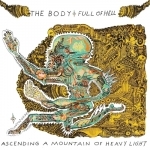
Ascending a Mountain of Heavy Light by The Body and Full of Hell
Album Watch
The Body and Full of Hell are both unique and influential forces in heavy music. Both artists...
metal
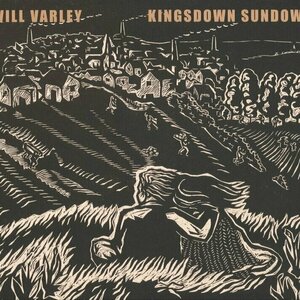
Kingsdown Sundown by Will Varley
Album
With the follow-up to the stellar Postcards From Ursa Minor, an album that propelled Will into...

LEGO® MINDSTORMS® EV3 Programmer
Entertainment and Education
App
Bring your LEGO® MINDSTORMS® EV3 robots to life! This is the official LEGO MINDSTORMS EV3...

Fuzzy House
Games
App
Fuzzy House is an imaginative doll house app that brings together digital and physical play. It is a...
